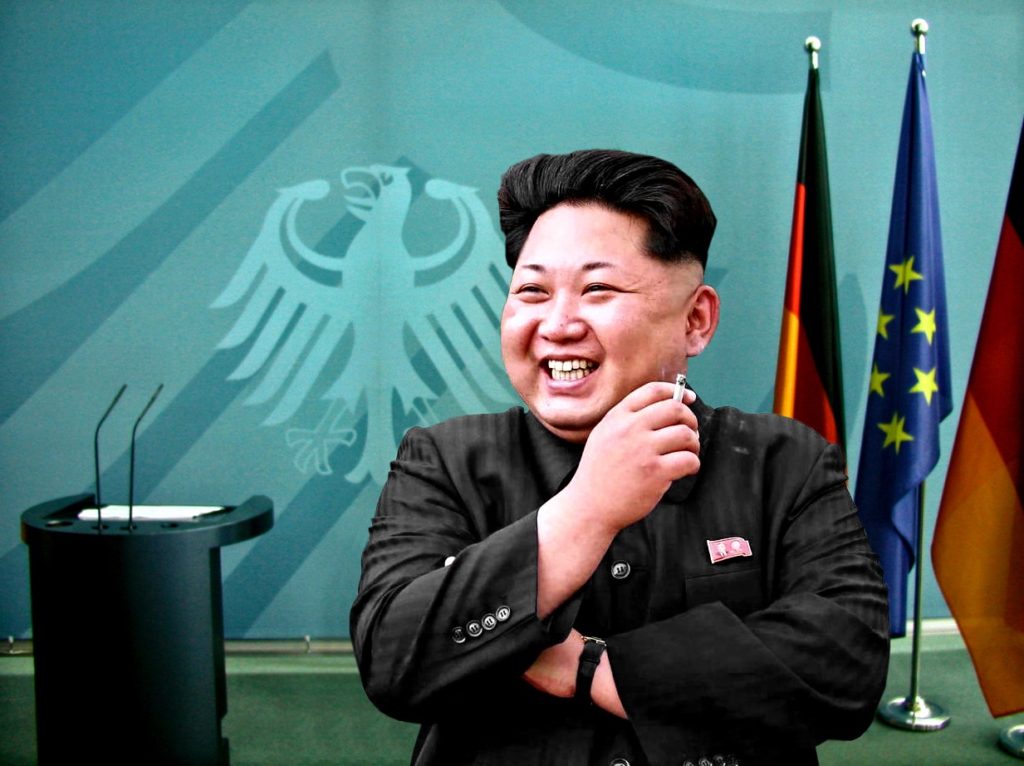The Peninsula
North Korea, Fake News, and getting Clickbaited by Kim Jong-un
Published June 15, 2017
Category: North Korea

By Nathaniel Curran
Fake News has been the hot topic of the past year, following the election of Donald Trump. The term has evolved from a description of false-fact to become something of a general pejorative. When Donald Trump denounced CNN as fake news, the subsequent rhetorical effect was less to question the veracity of CNN’s reporting than to insinuate that the news agency was morally bankrupt (or put differently, “not nice”).
We now live in a post-truth society where elections can be influenced by clickbait, and the topic of North Korea is one that lends itself incredibly well to this new-era of sensationalist headlines and questionable reporting. For one thing, the country is sensational, in the sense that any details that emerge concerning Kim Jong-un do indeed promote intense curiosity. A nuclear-capable rogue nation ruled by a third-generation despot is sure to arouse an interest in anyone with an even passing interest in international affairs.
I can’t count how many times I’ve clicked on an article on Facebook that promised to show me “shocking but true” photos from North Korea, only to find out that the article featured photos from a Pyongyang planned tour, featuring nothing more than a few snapshots of statues of Kim Il-sung. Other times the headline will describe a provocation that I learn, having clicked on the link, is actually several years old. People love to share news, and in the case of North Korea, they seem to have a difficult time separating the wheat from the chaff.
But even beyond the well-known phenomenon of clickbait, North Korea seems persistently plagued by a fake news-esque problem that is perpetuated by even reputable media outlets. Often these articles involve wild speculation that lacks substance yet maximize clickability. Such reports vary from whimsical bits of gossip, with titles like “You’ll never believe which American celebrity is popular in North Korea!” to voyeuristic pieces about the Kim family’s quirks or spending habits.
One explanation for this glut of coverage is that these stories are easy to write; North Korea consistently provides plenty of fodder. What these articles don’t always do, however, is put the North Korean situation in context. For example, when an article mentions that the North Korean state media has said North Korea will drown country X’s city Y in fire, it often fails to mention that such pronouncements are not out of the ordinary. Frequency of the threat is an important distinction to make; North Korean state media demonizing the U.S. is by no means a rare occurrence, whereas, say, Canadian threats of fire-drowning, should they appear, warrant immediate attention.
This is not to say that the situation with North Korea is not both dangerous and evolving; the North Korean situation is without a doubt one of the most vexing problems facing both the U.S. and South Korea. When one factors in China’s support for the Kim regime, along with China’s position as a new superpower, the situation becomes even more pressing and complex.
This is precisely why the American news media needs to do a better job of putting the situation into context. The American public is presented with an image of North Korea that is anachronistic and inaccurate. On the one hand, the situation is made to appear simpler than it is –either they nuke us or they don’t- while on the other hand the constant threat of nuclear annihilation obscures important issues like China and South Korea’s relationship with North Korea, as well as the ongoing humanitarian crisis in North Korea.
Stories on North Korea -at least those that seek to adhere to even the most basic of journalistic standards- need to contextualize their coverage. Simply reporting a news release from Pyongyang isn’t enough; stories need to also include an explanation for how the geopolitical situation has shifted as a result. Otherwise, such stories are probably less the result of a new development and more the result of a slow news day.
However, the onus is also on us as social media users. We must all refrain from clicking “share” just because the title contains the word “nuclear” or features photos of lockstep soldiers and rocket artillery. North Korea is volatile and unstable as it is, and the last thing anyone wants is a Boy-who-cried-wolf situation if things take a turn for the worse on the peninsula.
Nathaniel Curran is a PhD student at USC’s Annenberg School of Communication and a 2017 COMPASS Summer Fellow. The views expressed here are the author’s alone.
Photo from driver Photographer’s photostream on flickr Creative Commons.
